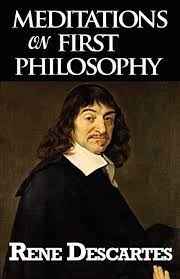
Rene Descartes’s Meditations On The First Philosophy is a book that seeks to redefine the methods on which we base our knowledge. By using the method of doubt, Descartes seeks to discover the truth behind his observations and thought processes. It is in this manner that Descartes can determine what is true and false. Through this process, Descartes can evaluate his beliefs and re-examine his understanding of the world.
In this book, Rene Descartes’ Meditations On The First Philosophy will be examined in terms of its background, ground-breaking concepts, and implications. A French philosopher and mathematician who is regarded as one of the most significant figures in the history of philosophy was the author of this significant work. The Meditations were written by Descartes in 1641 as a response to the philosophical conventions of the time. He specifically aimed to challenge the veracity of sensory perception and to present his theory of Cartesian Dualism, which maintains that the mind and body are separate beings.
Since historical times, philosophers have sought answers to questions about life, truth, and reality. One of the earliest of these was Rene Descartes’ Meditations on the First Philosophy. Descartes wrote this book to explore the nature of knowledge and certainty. He breaks down his argument into six parts, each one delving deeper into truths about ourselves and our existence.
One of the most infamous works in the history of philosophy is Rene Descartes’ Meditations on First Philosophy. It provides a profound look at the process of learning and what it means to be sure of our beliefs. Descartes presents his famous cogito ergo sum, or “I think, therefore I am,” in this work. Descartes suggests that rather than starting with what one has been taught or observed, knowledge should instead start with one’s thoughts and reasoning in this phrase.
The foundation of philosophy is a topic that has been discussed for centuries, with one of the most influential works being ‘Meditations on First Philosophy’ by Rene Descartes. This book is the foundation for modern philosophical thought and the implications of its content are still discussed today. The premise of the text is to provide a method for gaining knowledge through doubt and skepticism, which Descartes believed was essential for understanding the world around us. He believed that our knowledge should be based on firm foundations, and his work is still used as a basis to evaluate the truth and validity of arguments.
Descartes held that letting go of assumptions and preconceptions was the only way to acquire true knowledge. He proposed that we could be sure that our knowledge was based on sound logic and reasoning by standing back and doubting everything. Descartes held the view that knowledge could be attained without the need for faith or unquestioning acceptance. The main idea of Descartes’ Meditations, which is still applied today in philosophical discussions, is the method of doubting.
To build upon these foundations, Descartes provides an epistemological framework that begins with the most basic of facts. He argues that all knowledge is built upon the foundation of one’s thoughts and reasonings. Consequently, one must be able to trust and have faith in their thoughts and beliefs before one can trust the beliefs of others. This idea is central to the process of inquiry and is essential for knowledge acquisition.
The work of Descartes has had a significant influence on modern philosophy, particularly in terms of epistemology. His idea of self-doubt and skepticism has been applied to judge the truthfulness of various philosophers’ claims. This method of analysis has been used in a wide variety of fields of study, from science and math to politics and religion. Ultimately, Descartes’s writings have contributed significantly to philosophical thought and are frequently used as a springboard for creating one’s own philosophical convictions.
In order to acquire true knowledge, according to Descartes, one must first cast doubt on all conventional wisdom before looking for evidence to support it. Today, many academic disciplines in philosophy and science still employ this method of inquiry, which is known as Cartesian doubt. Descartes added the idea of innate ideas—or the idea that knowledge exists prior to experience or observation—to this method of inquiry. His claim that knowledge starts with our thoughts and reasoning was strengthened by this idea.
Due to its thorough analysis of knowledge and reality, Descartes’ work has had a lasting impact. He contends that the foundation of understanding the world is one’s capacity for logic and reason. His method emphasizes the value of doubt as a tool for knowledge acquisition and contends that nothing should ever be accepted as true without first being put to the test. Descartes’ method was revolutionary in its day and has since influenced a lot of scientists, philosophers, and other thinkers who have attempted to comprehend the world and our place in it.
